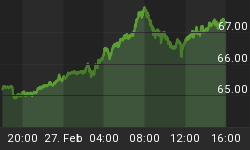Tunisia's uprising has democracy watchers wondering if the instability will spill over into neighboring North African countries, but really that instability is already there. In the first week of the year, Algeria experienced violent protests after the government hiked prices for staple foods like milk, sugar, oil, and flour. Some 800 people were injured in several days of rioting, prompting President Abdelaziz Bouteflika to cut costs on some foods and lower import duties on others. The rioters went home, but odds are they will return to the streets when prices rise again.
Those rioters are not just angry about high food prices. Unemployment in Algeria is officially at 11%, but estimates from outside of the government run much higher, along the lines of 25%. Inflation keeps creeping up, and the country's impoverished population, who has very little freedom, has grown distrustful of the government. A massive boycott rendered the results of the last presidential election, where Bouteflika won with 92% of the vote, almost meaningless.
But Algeria is not poor - an OPEC member, it is the ninth largest crude oil producer in the world. More importantly for this conversation, Algeria is the world's sixth largest natural gas producer, pumping out just over 3 trillion cubic feet (Tcf) of natural gas in 2008. At the beginning of 2010, the country's proven natural gas reserves stood at 159 Tcf, the tenth largest in the world, and notably, Algeria exports some 3.6 billion cubic feet (Bcf) of natural gas each day to Europe.
On top of the natural gas flowing to Europe through pipes, Algeria has become a key supplier of liquefied natural gas, or LNG. In 2008, Algeria exported 711 Bcf of LNG, and 90% of it went to Europe.
Europe is growing increasingly reliant on LNG - for two reasons. First, Europe does not like relying on Russia for natural gas because that gas has to come through Ukrainian pipelines. Three times in the last five years, there have been major supply disruptions due to allegations that the Ukrainians were siphoning off gas. The most serious disruption came in January 2009, when 18 European countries reported major drops or complete gas cut-offs.
Second, Europe's energy needs continue to rise, but many European governments have committed to reducing greenhouse gas emissions. Since natural gas is low-carbon and clean-burning, it has become a key part of Europe's future energy strategy.
The EU has a "four corridors" plan for its natural gas needs: it will draw from Norway, a reliable supplier; Russia, through those Ukrainian pipelines; North Africa, primarily Algeria; and Central Asia and the Middle East, through Turkey. It would be a great plan, if only it were closer to reality. The Turkish route relies on the long-planned Nabucco pipeline, which is making very slow progress towards construction. And Norway's reserves are dwindling. Up steps Algeria in importance.
Algeria already supplies 20% of Europe's natural gas and more than 30% of the EU's LNG imports. And in November, European LNG import volumes set a new record high - Europe imported a staggering 302 Bcf of LNG, shattering the old record (set only in September) by 52 Bcf. The United Kingdom, facing its coldest winter in years, alone accounted for 73 Bcf. Whether the average Brit, Spaniard, or Italian realizes it, they rely on Algeria.
And along with high unemployment, high food prices, and little freedom, Algeria's citizens are justifiably angry that their country's resource wealth is not making things better for the average person. If Algeria's rioters return, spurred on by their Tunisian neighbors or by their own government's inadequacy, and overthrow Mr. Bouteflika in favor of an anti-European government, gas prices could take a serious jump. And LNG is transported by ships, not pipelines, so if Europe is not willing to pay those higher prices, the ships will simply sail to other countries that will.
This is no certain thing - no one knows if Algeria will follow in Tunisia's footsteps, especially if the current confusion in Tunisia evolves into prolonged chaos. And Algerians know how important oil and gas revenues are for their country - even during Algeria's bloody civil war in the 1990s, during which some 160,000 people died, oil and gas exports were not affected.
Marin Katusa, our chief energy strategist, and his team make sure to keep a close eye on the global energy markets. Thanks to this vigilance, they continuously find new, overlooked opportunities... like unconventional oil and gas exploration in the Middle East, or a little-known "green" energy that is poised to strike it rich. Subscribe today and get Casey's Energy Report for $300 less - plus one full year of Casey's International Speculator FREE. More here.















